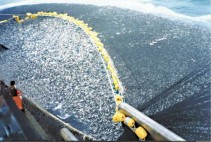Have humans managed to accelerate the evolution of a species?
The process of evolution or natural selection takes years naturally, and is carefully fine-tuned and passed down throughout generations. However, humans try to replicate evolutionary process to document how it occurs. They also tend to invade and intrude on the habitats of other species, which can cause organisms to adapt more quickly to survive sudden changes brought on by humanity. Have humans managed to accelerate the evolution of a species?
In some instances, humans have been known to purposely speed certain controlled processes up enough for them to document them. One of the more famous examples of this was the experiments carried out by Richard Lenski, who has, since 1988, been conducting a long-term evolution experiment using the E.coli bacterium as his subject. However, certain things (e.g. climate change) are accelerated by accident, with alarming and potentially harmful results.
An example of this accidental acceleration was discussed in a UK Telegraph article titled "Human fishing and hunting accelerating evolution of species". By over harvesting some fish species at their most mature age and level of development, humans are causing certain fish species to change their sizes, and this is at a much more rapid rate than would happen naturally. Dr. Chris Darimont, a post-doctoral researcher in environmental studies at the University of California was quoted as saying "The pace of changes we're seeing supercedes by a long shot what we've observed in natural systems, and even in systems that have been rapidly modified by humans in other way. As predators, humans are a dominant evolutionary force."

In his book "The Botany of Desire", Michael Pollan discusses the Semper Augustus (a rare and prized tulip) and Dutch "tulipmania" of the 17th century. This was a brief but intense tulip obsession in Amsterdam. It was one of the first instances of humans using natural selection to purposely change the appearance of an organism. A blight had been observed changing the colors of tulip petals, and soon a multicolored tulip became a coveted item. Farmers were introducing this blight to their tulips, which would ultimately kill the crop, but made the flowers beautiful and desired. Tulips were sold for outrageous amounts of money and a full-out craze ensued, until the market for the prized flower collapsed a few years later.

Mankind has accelerated change in other species and organisms. While they may not have induced complete evolutionary change, they have certainly accelerated the rate of natural selection. This has been done both purposefully, with the intent and purpose of changing features or adding or eliminating different traits, such as with the tulips, or other examples, like dog breeding. This has also been done accidentally, for example some released or escaped pets caused an explosion of Burmese pythons in Florida, which changed biological diversity and natural evolution. Possibly, sometime in the future, mankind will be able to accelerate actual evolution in its quest to understand nature and have concrete theories.
An example of this accidental acceleration was discussed in a UK Telegraph article titled "Human fishing and hunting accelerating evolution of species". By over harvesting some fish species at their most mature age and level of development, humans are causing certain fish species to change their sizes, and this is at a much more rapid rate than would happen naturally. Dr. Chris Darimont, a post-doctoral researcher in environmental studies at the University of California was quoted as saying "The pace of changes we're seeing supercedes by a long shot what we've observed in natural systems, and even in systems that have been rapidly modified by humans in other way. As predators, humans are a dominant evolutionary force."
In his book "The Botany of Desire", Michael Pollan discusses the Semper Augustus (a rare and prized tulip) and Dutch "tulipmania" of the 17th century. This was a brief but intense tulip obsession in Amsterdam. It was one of the first instances of humans using natural selection to purposely change the appearance of an organism. A blight had been observed changing the colors of tulip petals, and soon a multicolored tulip became a coveted item. Farmers were introducing this blight to their tulips, which would ultimately kill the crop, but made the flowers beautiful and desired. Tulips were sold for outrageous amounts of money and a full-out craze ensued, until the market for the prized flower collapsed a few years later.
Mankind has accelerated change in other species and organisms. While they may not have induced complete evolutionary change, they have certainly accelerated the rate of natural selection. This has been done both purposefully, with the intent and purpose of changing features or adding or eliminating different traits, such as with the tulips, or other examples, like dog breeding. This has also been done accidentally, for example some released or escaped pets caused an explosion of Burmese pythons in Florida, which changed biological diversity and natural evolution. Possibly, sometime in the future, mankind will be able to accelerate actual evolution in its quest to understand nature and have concrete theories.

Comments
No comments have been posted yet.
Log in to post a comment.